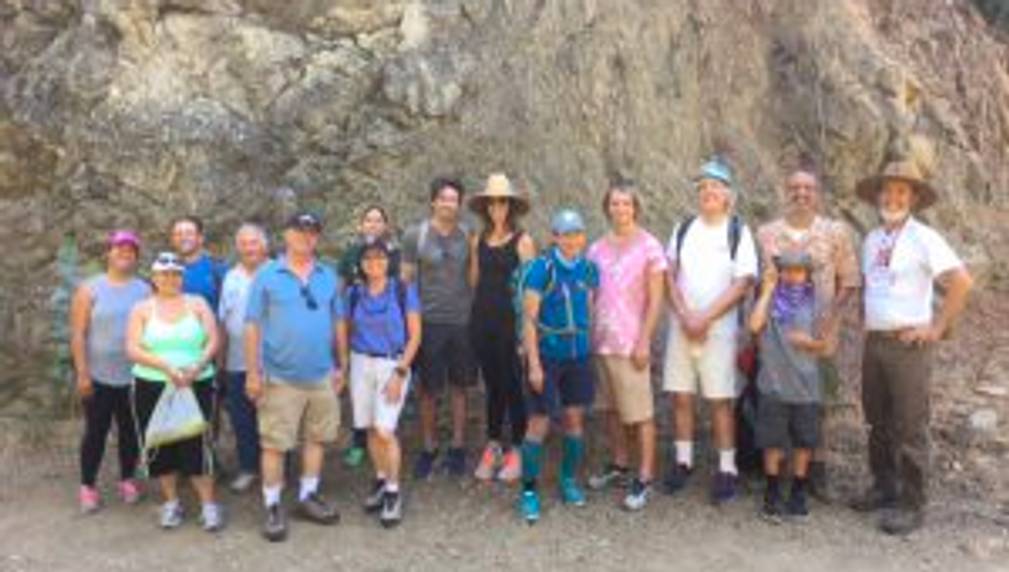Seas to Trees: LACCD Experiential Learning
Seas to Trees: LACCD Experiential Learning seeks to connect students across the Los Angeles Community College District (the largest in the nation) to their natural environment through experiential learning excursions: seven sustainability-themed trips over the 2022-23 academic year. The goal is to engage community members from the District's nine colleges and immerse stakeholders living in highly polluted and urban areas with access to open green/blue spaces, with underlying themes related to climate change and environmental education.

What is the primary issue area that your application will impact?
Green Space, Park Access, and Trees
In which areas of Los Angeles will you be directly working?
County of Los Angeles
City of Los Angeles
In what stage of innovation is this project, program, or initiative?
Pilot or new project, program, or initiative
What is your understanding of the issue that you are seeking to address?
We are addressing the inequity of access to natural spaces that community college students experience by providing structured environmental excursion opportunities for students to engage, be immersed in, and gain education on our natural California land and seascapes. Our community struggles to access natural spaces outside urban city settings, this program will dissolve barriers to access including financial barriers, logistical barriers, and open the door to new physical spaces as well as expanding minds, encouraging interaction, and imagination past what our students experience in urban environments. Our communities are disproportionately impacted by the effects of the climate crisis and face a disproportionate pollution burden is a result of historic environmental racism, leading to their designation as disadvantaged communities by SB 535. It is critical for students to visualize and create lived experiences with our natural environment as advocates in the climate movement.
Describe the project, program, or initiative this grant will support to address the issue.
The LA2050 grant will aid our community’s efforts toward sparking conversations about climate change, enhance our community’s environmental education and authority, enable connection to our natural spaces, and facilitate access to spaces/resources otherwise unavailable. Grant funding will enable community members to surpass financial and logistical barriers to accessing our environment while fostering a love for the natural world, providing experiential learning opportunities, and prompt meaningful interactions among community stakeholders. Our program will feature 7 excursions – 2 during the Fall, 2 during the Spring, and 3 during the Summer. Themes for some of the excursions include: 1. Hiking & the natural California landscapes including pollinators, plant literacy, native species, trail safety, animal identification, and environmental art 2. Zero waste including waste reduction, waste systems & recycling, compost/vermicompost, and soil health 3. Seascapes including a water expedition, water quality testing, drought/water cycles, ocean acidification, native species, and ocean ecosystems 4. Food justice including food sovereignty, food deserts, food systems, farming practices (conventional, Indigenous, small/large scale, agroecological concepts), seed banks & seed sovereignty, edible ecosystems, learning gardens/community gardens and growing one’s own food, cooking, and nutrition.
Describe how Los Angeles County will be different if your work is successful.
Seven out of the nine colleges in Los Angeles Community College District are located within a mile of disadvantaged communities, meaning communities surrounding these seven colleges suffer the highest economic, health, and environmental burdens. Due to a long history of redlining, many folks in underprivileged communities have limited access to green and blue space and nutrient-dense foods, which leaves them disconnected from the entirety of food systems and ecosystems. By connecting students from these communities with educational activities to fully immerse and interact with the environment, we can engage their understanding of human impacts on ecosystems and how we can act more sustainably with our environment. This initiative intends to empower LA County’s most vulnerable community members to take more leadership roles in the sustainability arena by increasing environmental education in communities most affected by environmental impacts due to human activities.
What evidence do you have that this project, program, or initiative is or will be successful, and how will you define and measure success?
The program will be successful by gaining participant registration for the planned excursions and assessing engagement as well as mastery over learned concepts from the excursion. Metrics will be defined as community participation and mastery of concepts with a pre and post assessment in the form of a game. Participants will also demonstrate mastery by providing accurate demonstration of concepts through experiential learning activities. The adoption of this program would also demonstrate success in the form of signaling power to other communities as the LACCD is the largest in the nation and would demonstrate a commitment to student engagement, learning, and lead by example for other institutions to provide similar opportunities to their community members. Both public and private entities in various industries will observe the LACCD model as a standard to adopt regarding community experience in natural spaces, ideally incorporating concepts into their programming opportunities.
Approximately how many people will be impacted by this project, program, or initiative?
Direct Impact: 150
Indirect Impact: 450